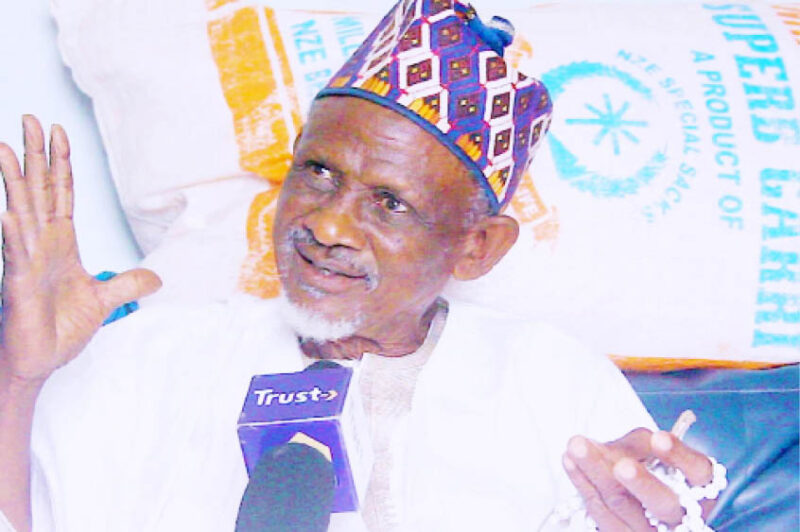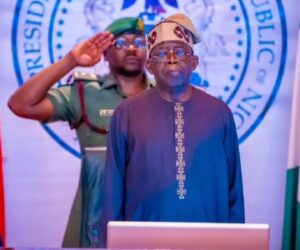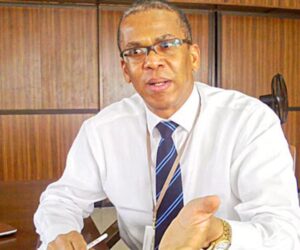Private schools in Nigeria have become lucrative business ventures, attracting entrepreneurs seeking to cash in on the growing demand for education by parents, guardians and stakeholders. Many individuals establish schools as a means to make a fortune, often prioritising profit over quality education.
Private schools in Nigeria have become lucrative business ventures, attracting entrepreneurs seeking to capitalise on the growing demand for education. Many individuals establish schools as a means to make a fortune, often prioritising profit over quality education.
SPONSOR AD
Recently, the profitability of private schools has drawn more people to invest in this sector. This trend has led to a surge in the number of private schools, with many entrepreneurs seeking to tap into the market.
Unlike many others, Musa Ibrahim, popularly known as Sagagi, a resident of Gangare community in Jos North Local Government Area of Plateau State, established the College of Islamic Studies (CIS), primarily to provide access to secondary education for children from low-income families in Jos communities.
Founded in 1977, the college initially focused on Islamic knowledge but later expanded to offer Western education, catering to both Muslim and Christian students. This expansion enabled children from diverse backgrounds to access education, making private schooling that was previously reserved for the affluent available and bridging the gap for those who struggled to attain both Islamic and Western knowledge.
Narrating the journey, Sheik Ibrahim said, “Prior to the establishment of the college, we used to take our children to Kano, Katsina, Zaria and other places to acquire Islamic knowledge at the secondary level. Realising this quest for knowledge, I decided that we should have one here in Jos rather than travelling to far-off states.”
The philanthropist noted that the beginning of the journey was challenging due to financial constraints, noting that despite the financial challenges, they struggled to obtain all the necessary documents, registration and affiliation to both the state and the Ahmadu Bello University, Zaria.

How I run the school
Sheik Ibrahim, who remembers that many people ask him how he manages the school considering the meager school fees he charges, said it was difficult but he endured the challenges.
He said, “Even the small school fee was challenging for some students to pay because the majority come from low-income families and we had to consider their circumstances.
“Due to the low response to payments, there was no fixed salary for teachers. I usually pleaded with the teachers, many of whom are former students who returned to contribute to the community, to understand that we are working together to help the community. Instead of promising a fixed salary, I shared the available funds among them. If we had money at the end of the month, we would pay them what we could and ask for their understanding. If payment was delayed, that’s what we would do. So we were not paying them salaries but stipends.”
I sold part of my inherited house to keep the school running
The proprietor, who is currently living in his family house, said he had to sell part of his inherited house to keep the school alive because he never received significant donations.
“Nobody has ever donated a substantial amount, like N100,000, to support teachers’ salaries. We have never received a call saying, ‘Take this money to support the teachers.’ We rely on what we get from students to run the school. If there is no money, I improvise. If I am in a situation where money is needed, I will sell whatever I have to support the school,” he explained.
He further said they didn’t send the children home due to unpaid school fees because they want them to acquire knowledge.
“I personally visit their homes to bring them back to school. There were naughty and stubborn children who didn’t listen to their parents, but I brought them back to ensure they gain knowledge and secure a better future. Today, many of them are responsible human beings. Many of our students are now professors, doctors, others,” he noted, adding that the school is over 47 years old.
“Our main intention is to ensure that knowledge is accessible everywhere, as it drives positive economic growth and good democratic governance. Many judges today are graduates of this school. There is no university in northern Nigeria where you won’t find a lecturer who attended this school.
“I am not sure of the number of soldiers, police officers and paramilitary personnel who are products of this school. The chief imam of Sultan Bello Mosque, Muhammad Sulaiman; current chief imam of Jos Central Mosque, Sheik Ghazali Isma’il Adam; Dr Kabiru Dambam; second, National Mosque Abuja, late Dr Gambo Hamza; former provost, College of Education, Zubairu, the late Professor Abubakar Wakawa; a lecturer at the Nasarawa State University Keffi, Professor Abdulrahman Lawan, and many others, are alumni of this school,” he noted.
One of the beneficiaries of Ibrahim’s gesture, Sheik Harisu Salihu, a renowned Islamic scholar in Plateau, described Sagagi’s philanthropy as rare. He said that in the last 40 years, whoever grew up and attended school within Jos communities must have either been taught by Sheik Ibrahim directly or his former student.
“As a beneficiary of Sheik Ibrahim’s gesture, I was among the third set that passed out from his school; and in 1989, he personally enrolled five of us at the ABU, Zaria, where I had my diploma and degree. He enrolled many of his students at higher institutions in Sokoto, Maiduguri and Bauchi states.
“To our knowledge, many influential people fought him for establishing schools for the children of the poor. He sold his house to give us education,” he said.
Sheik Harisu also recalled: “During our time, he was not collecting the meager school fees himself, some people were delegated to collect it and ensure the running of the school. His aim is to see children of the poor have education; that is why I don’t have a hero like him. I have not seen one person who has contributed to the development of the society with his money, knowledge and strength like him.”
He is down to earth – Former teacher
Mr Menshak Lar, who was a Chemistry and Biology teacher in the school, described Sheik Ibrahim as a patriotic Nigerian who had contributed immensely to education and life of people in the country.
“To tell you the truth, I have never seen a man like him. For the period of my stay in the school, I can describe him as humble. The man is down to earth. As a proprietor of the school, he bends to greet you as a teacher. I have never seen such humility in my whole life. He is passionate about his students.
“While I was there, there was no segregation between Muslims and Christians – the school accommodates them equally. And up to this day, I still have a relationship with Baba Musa Sagagi. That is why I visit the school up till now. This man needs to be recognised. He deserves to be celebrated. He is really a father to all. I don’t know any bad side of him,” Lar said.
He is a humanitarian, benefactor – Jos chief imam
Sheik Ghazali Isma’il Adam, the chief imam of Jos Central Mosque, described the man as a humanitarian, benefactor and educational philanthropist who dedicates his life to others, even at the detriment of his family.
The chief imam, who also studied at the school, said Sheikh Ibrahim would borrow money to settle teachers’ salaries, just for the comfort of children from poor backgrounds.
“At one point, he sent me to borrow money from someone to pay some teachers because he didn’t want them to stop coming. He is a man who would fight whoever sends students home due to school fees. And he does this in the name of building their future,” Sheik Adam said.
He further noted that the philanthropist secured admission into tertiary institutions across the country for many of those who studied at CIS.
“He dedicated his resources, time and strength travelling to many higher institutions to secure admission for you and connect you with people. He sold part of his inherited house so that people could enjoy education. He is ever ready to help in the society. Because of his simplicity he spends whatever he has on the education of others,” Adam said.








